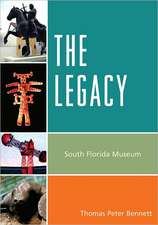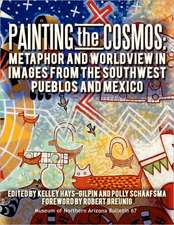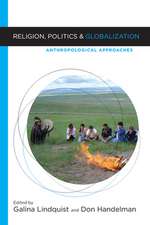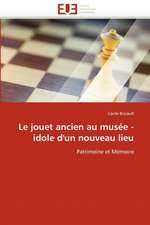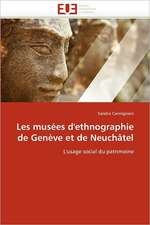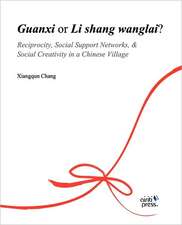Dynamics of Human Biocultural Diversity: A Unified Approach
Autor Elisa J. Soboen Limba Engleză Paperback – 4 feb 2020
Preț: 420.46 lei
Nou
Puncte Express: 631
Preț estimativ în valută:
80.46€ • 84.17$ • 66.83£
80.46€ • 84.17$ • 66.83£
Carte tipărită la comandă
Livrare economică 03-17 aprilie
Preluare comenzi: 021 569.72.76
Specificații
ISBN-13: 9781138589711
ISBN-10: 1138589713
Pagini: 314
Ilustrații: 190
Dimensiuni: 178 x 254 x 23 mm
Greutate: 0.55 kg
Ediția:Nouă
Editura: Taylor & Francis
Colecția Routledge
Locul publicării:Oxford, United Kingdom
ISBN-10: 1138589713
Pagini: 314
Ilustrații: 190
Dimensiuni: 178 x 254 x 23 mm
Greutate: 0.55 kg
Ediția:Nouă
Editura: Taylor & Francis
Colecția Routledge
Locul publicării:Oxford, United Kingdom
Public țintă
Postgraduate and UndergraduateCuprins
Preface 1. Anthropology and Complexity 2. Genetic Adaptation 3. Developmental Adjustment and Epigenetic Change 4. Emergence of Culture and People Like Us 5. Global Expansion, Human Variation, and the Invention of ‘Race’ 6. A Human Baseline 7. Agricultural Revolution: Another Great Divide 8. Epidemics and Immunities 9. Political Economy of Health Disparities 10. Stress, Meaning, and Health 11. Culture in Practice: Embodying Gender 12. Body Ideals and Outcomes 13. Kinship: So Relative Conclusion: Respecting Connections
Notă biografică
Elisa J. Sobo is Professor and Chair of Anthropology at San Diego State University, California, USA. A sociocultural anthropologist specializing in health, illness, and medicine, she is Past President of the Society for Medical Anthropology, and currently Section Convener for the American Anthropological Association.
Recenzii
Praise for the previous edition:
‘This book is a brilliant contribution to a comprehensive, holistic approach to human variation. Sobo examines the interaction of biology and culture in the context of a broad systems perspective on human communities. With examples ranging from the evolution of our species to how we shape our bodies in response to cultural ideals, she offers a refreshing view of us as biological entities suspended in sociocultural systems – inseparable dimensions of human existence.’
Bill Dressler, University of Alabama
‘Being and becoming human is biocultural, and very few books drive that point home as well as this one. With a friendly and engaging narrative, Sobo guides the reader through a meaningful, and anthropological, engagement with humanity. This book should be used as a core text for both introductory anthropology and biocultural courses’.
Agustín Fuentes, University of Notre Dame
‘I am delighted to see an introductory text that finally takes seriously the biocultural idea that we are creatures of both biology and culture, moving beyond the tired old nature-nurture dichotomy. Sobo deftly weaves together concepts and examples that students can relate to. She skilfully tackles critical contemporary topics such as globalization, sustainability, inequality, health, and social change’.
Wenda Trevathan, New Mexico State University
‘Sobo’s remarkable textbook is also a benchmark for the field. The material is deftly presented, immensely accessible, innovative in scope, and poised to advance biocultural approaches in deeply compelling and generative new directions’.
Justin Nolan, University of Arkansas
‘Sobo’s approach to the study of human diversity is a gracefully written and creative application of the unifying notion of epigenetic complexity. This introductory text is a readable and gripping account of how observable traits of human behaviour (phenotypes) are the product of interactions of numerous sorts, between genes and their own biochemical products, and between biochemical systems, environmental signals, historical realities and mental experiences. Highly recommended!’
Richard A. Shweder, University of Chicago
‘This book is a brilliant contribution to a comprehensive, holistic approach to human variation. Sobo examines the interaction of biology and culture in the context of a broad systems perspective on human communities. With examples ranging from the evolution of our species to how we shape our bodies in response to cultural ideals, she offers a refreshing view of us as biological entities suspended in sociocultural systems – inseparable dimensions of human existence.’
Bill Dressler, University of Alabama
‘Being and becoming human is biocultural, and very few books drive that point home as well as this one. With a friendly and engaging narrative, Sobo guides the reader through a meaningful, and anthropological, engagement with humanity. This book should be used as a core text for both introductory anthropology and biocultural courses’.
Agustín Fuentes, University of Notre Dame
‘I am delighted to see an introductory text that finally takes seriously the biocultural idea that we are creatures of both biology and culture, moving beyond the tired old nature-nurture dichotomy. Sobo deftly weaves together concepts and examples that students can relate to. She skilfully tackles critical contemporary topics such as globalization, sustainability, inequality, health, and social change’.
Wenda Trevathan, New Mexico State University
‘Sobo’s remarkable textbook is also a benchmark for the field. The material is deftly presented, immensely accessible, innovative in scope, and poised to advance biocultural approaches in deeply compelling and generative new directions’.
Justin Nolan, University of Arkansas
‘Sobo’s approach to the study of human diversity is a gracefully written and creative application of the unifying notion of epigenetic complexity. This introductory text is a readable and gripping account of how observable traits of human behaviour (phenotypes) are the product of interactions of numerous sorts, between genes and their own biochemical products, and between biochemical systems, environmental signals, historical realities and mental experiences. Highly recommended!’
Richard A. Shweder, University of Chicago
Descriere
This lively text by leading medical anthropologist Elisa Sobo offers a unique, holistic approach to human diversity and rises to the challenge of truly integrating biology and culture.
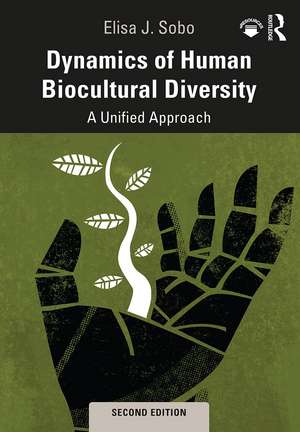

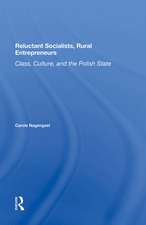

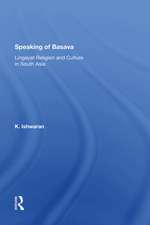
![The Sexual Lives of Savages: [1932/1952]](https://i2.books-express.ro/bt/9780415606523/the-sexual-lives-of-savages.jpg)
![Coral Gardens and Their Magic: The Description of Gardening [1935]](https://i3.books-express.ro/bt/9780415606530/coral-gardens-and-their-magic.jpg)
![Man and Culture: An Evaluation of the Work of Malinowski [1957]](https://i0.books-express.ro/bt/9780415606554/man-and-culture.jpg)
